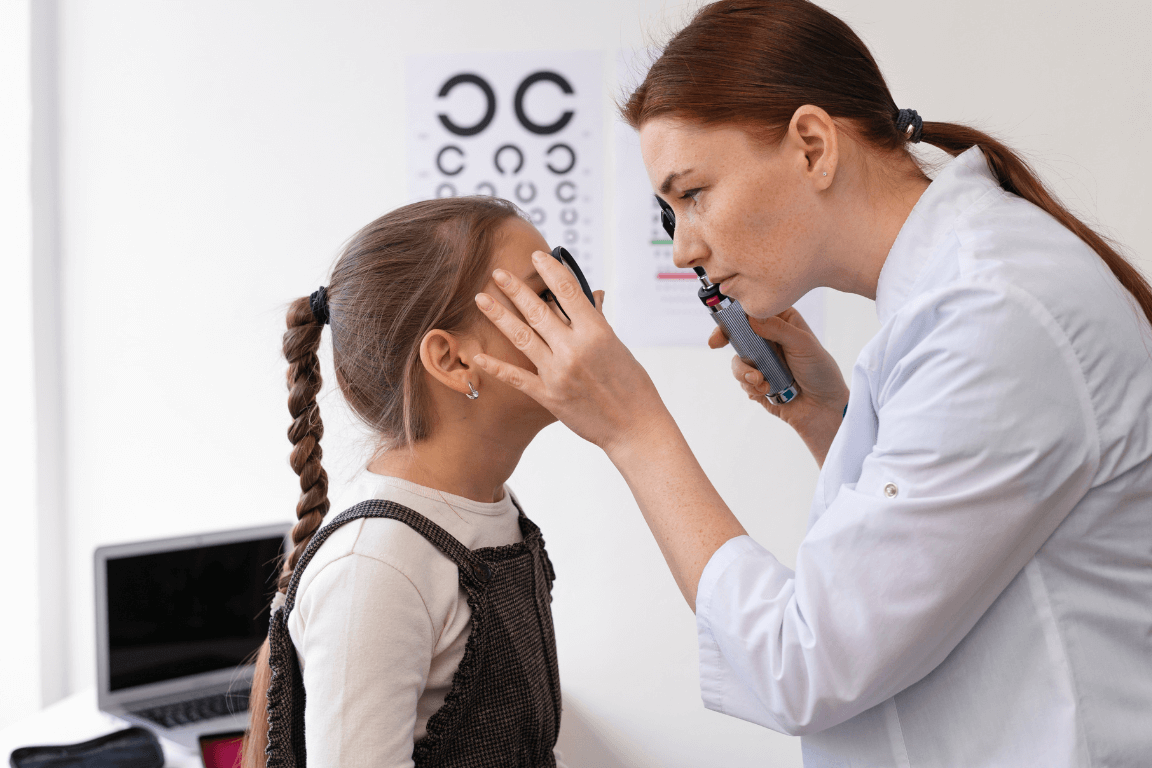Optometrists are often no strangers to managing challenging patients. Challenging patients can range from hyperactive toddlers to anxious, uptight adults. They can also include your non-verbal patients or those with other cognitive impairments, whether from acquired brain injuries or, more commonly, dementia. Vision, alongside hearing, is the sense to suffer the most in dementia,1 and optometrists play a crucial role as part of the interdisciplinary healthcare team for dementia patients.
Understanding dementia
Dementia is a group of neurological disorders characterised by progressive loss of cognitive function.1,2 It results in abnormal changes and deficiencies in behaviour, memory, reasoning, language, abstract thinking, and judgement.1,2
Dementia can be caused by over a hundred different aetiologies,3 the most common being Alzheimer’s disease, vascular dementia, and Lewy bodies.1,3 Other, less common types of dementia include alcohol-related dementia and childhood dementia.3
Patients who have dementia can present certain challenges during an optometric consultation due to these cognitive changes. They may:4
- Often repeat the same question due to memory deficiencies
- Go through phases of restlessness, such as refusing to sit in the chair and instead pacing the room
- Exhibit increased agitation or aggression
Dementia and eye care
The decline in cognitive function can make it difficult for dementia patients to communicate their vision concerns, and they often encounter significant difficulties in accessing adequate eye care. As a result, treatable sight impairments are more commonly found amongst those with dementia than those without, whether these patients are cared for at home or in a facility.1
Undiagnosed and untreated vision impairment has a significant impact on both the dementia patient and their carers. Poor vision makes it difficult to perform basic activities of daily living and can restrict independence and social interactions when the effects of dementia can already have profound effects on these areas. Furthermore, dementia patients are already at an increased risk of falls and hospitalisation; untreated low visual acuity, contrast sensitivity, and stereoacuity further contribute to this risk.
Optometrists are ideally positioned as accessible primary eyecare providers in detecting vision impairment in this population, the treatment of which can have effects that reach beyond simply improving sight and visual function. Though special equipment is not typically needed for a basic eye test, your approach to this patient may need to be modified slightly.
Tips for Managing Dementia Patients
1. Accept that you may not be able to perform all routine clinical tests, but still, try.
It might be tempting to exclude a test as “too difficult” for the patient in front of you. However, there is evidence that even advanced dementia patients can complete a full eye test with the right support. If clinically indicated, even visual field testing should be attempted, though reliability tends to be low.1 If you make a clinical judgement to exclude a relevant assessment or if the results are incomplete, be sure to record why.
2. Be flexible with the appointment time.
Ask the patient, carer, or other practitioners of the patient’s healthcare team whether there is a more suitable time of the day for the examination. There may be a preferred time of day when the patient is more at ease or cooperative. You may also need to allow extra time for the appointment or spread out your testing over more than one appointment so as not to rush or stress the patient. With this, be aware that a dementia patient’s behaviour and ability to understand can vary between sessions.
3. Notify all practice staff of the patient’s condition before their attendance.
It can be fairly confronting to witness aggressive or agitated behaviours from a patient at any time, but being aware of a dementia diagnosis can help to prepare your staff. You should take steps to ensure the waiting area is quiet and calm with no potential tripping hazards. 1 Optical dispensers involved in the patient’s care should also be coached on interacting with patients with dementia. If the patient starts to become particularly aggressive or agitated, let your staff know that it’s okay to remove themselves from the situation if ever they feel unsafe.
4. Consider different optotypes for visual acuity testing to get the most out of your patient.
One study suggested that letters should still be the optotype of choice when assessing the acuity of a dementia patient. 85% of study participants were able to respond to letters, 84% to numbers, and 66% to the tumbling E. Only 15% were unable to respond to any optotype.5
5. Be aware that dementia has been shown to induce retinal changes on OCT.
With relatively recent advancements in retinal imaging, data have demonstrated that retinal nerve fibre layer thinning can be found in dementia patients. In some cases, the degree of thinning is directly associated with dementia severity. As other ocular conditions, such as glaucoma, rely on the use of retinal nerve fibre analysis on OCT, it is worthwhile being aware that OCT results may be confounded by dementia-associated degeneration of the retina. However, at this point, there is insufficient understanding to make clinical recommendations on differentiating dementia-associated from glaucomatous retinal changes. 1
6. Adjust your communication appropriately.
One qualitative study found that patients and carers receiving sufficient information from eyecare professionals was inhibited by the use of jargon, assumption of knowledge, and lack of logical, clear explanations.6 Though these points are often key challenges for communicating with any patient, the confusion can be exacerbated in the presence of dementia. Effective communication with a patient with dementia involves:7
- Ensuring there are no distractions during the conversation
- Speaking slowly and clearly
- Maintaining eye contact
- Not rushing or interrupting if the patient is slow to respond
- Asking one question at a time
- Providing clear step-by-step instructions
- Consider writing down notes or instructions from the consultation
Summary
Though managing dementia patients in optometry can present a challenge, these patients are no less deserving of your time and efforts. The existing gaps in eyecare for dementia patients present an opportunity for optometrists to look for ways to be more proactive in screening this population for ocular disease and other vision disorders.
References
- Piano M, Nguyen B, Gocuk S, Joubert L, McKendrick A. Primary eyecare provision for people living with dementia: what do we need to know? Clinical and Experimental Optometry. 2022. Available at: https://www.tandfonline.com/doi/full/10.1080/08164622.2022.2140032?scroll=top&needAccess=true&role=tab.
- Dementia Australia. Warning signs of dementia. https://www.dementia.org.au/. 2022. Available at: https://www.dementia.org.au/information/about-dementia/how-can-i-find-out-more/warning-signs-of-dementia. (Accessed February 2023).
- Dementia Australia. Types of dementia. https://www.dementia.org.au/. 2022. Available at: https://www.dementia.org.au/information/about-dementia/types-of-dementia. (Accessed February 2023).
- NHS UK. Coping with dementia behaviour changes. https://www.nhs.uk/. 2021. Available at: https://www.nhs.uk/conditions/dementia/behaviour/#:~:text=increased%20agitation,things%20that%20do%20not%20exist. (Accessed February 2023).
- Kergoat H, Law C, Chriqui E et al. Tool for screening visual acuity in older individuals with dementia. Am J Alzheimers Dis Other Demen.2017; 32: 96–100.
- Wolski L, Leroi I, Regan J et al. The need for improved cognitive, hearing and vision assessments for older people with cognitive impairment: a qualitative study. BMC Geriatr.2019; 19: 328.
- Alzheimer’s Association. Communication and Alzheimer’s. https://www.alz.org/. 2023. Available at: https://www.alz.org/help-support/caregiving/daily-care/communications. (Accessed February 2023).





